Operating Model
The Operating Model describes the way an the enterprise or an organization delivers value to its stakeholders.
An operating model is established by a top management team as the way to realize the strategies to achieve its purpose. The top management team is defined as:
ISO 9000:2015: Top Management Team: person or group of people who directs and controls an organization at the highest level
This top management team establishes the scope of the operating model at their level within the Enterprise. This can be:
-
The whole Enterprise
-
A specific Organization
-
A single Team
The Operating Model describes the Design of an Organization. The Operating Model describes the organization at specific points in time:
-
Current Operating Model: The design of the current state Organization or whole Enterprise.
-
Intermediate Operating Model: The design of the organization at a specific point in time during the transition to the Target Operating Model
-
Target Operating Model: The design of the Desired future state of the organization or the enterprise.
The Operating Model is also related to the following architectural / design documents:
-
Enterprise (SoS) Architecture Description created using the Link to the Enterprise (SoS) Architecture Description Framework)
-
Enterprise and Technology Architectures using the TOGAF Architecture Framework.
-
Architecture Descriptions using the Universal Architecture Framework (UAF).
-
Blueprint (2011 version or earlier) or Target Operating Model (2019) using the Program Management business process, Managing Successful Programes.
-
Various Organizational Design (OD), Business Change or management approaches that describe the future state of the enterprise or organization (See Management References)
The operating model can also be seen as a scalable operating model using a multi-dimensional approach. This multi-dimensional approach to organization design has been described by Russell Ackoff and Jay Galbraith.
When considering the Enterprise as a System of Systems (SoS), a multi-architectural approach has been taken to the creation of the operating model. The Enterprise or Organization Architecture Description is the basis for the operating model at any point in time. The appropriate level architecture description is created using the Enterprise (SoS) Architecture Description Framework Link to the Enterprise (SoS) Architecture Description Framework
The approach to creating operating models that can be scaled from a single team to the whole enterprise is based upon the team model shown below:
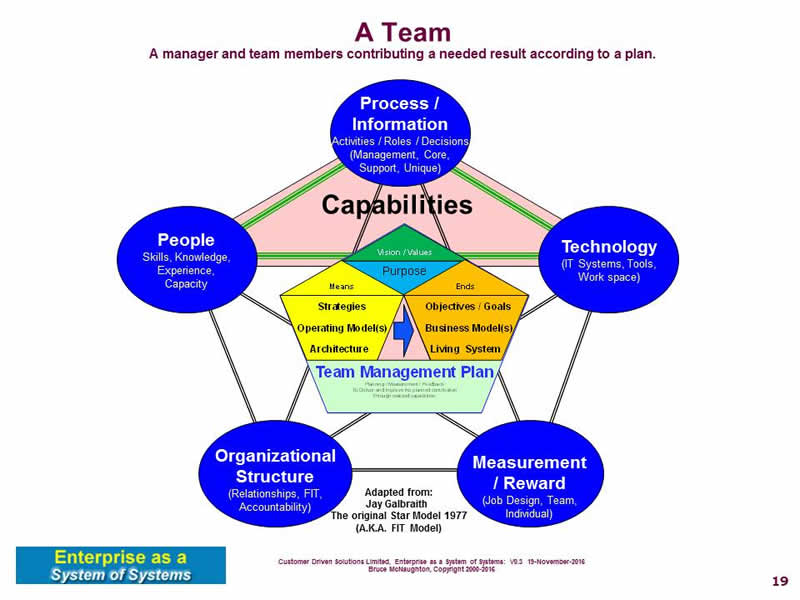
This is an adapted version of the STAR Model from Jay Galbraith and is based upon a team model realizing appropriate capabilities to deliver its purpose.
This model is also scalable from small organizations to multi-national, multi-product enterprises. The following diagram highlights how this operating model scales. The scalability is based upon three of the views of an enterprise: Capability, Organization and Value. See the picture below:
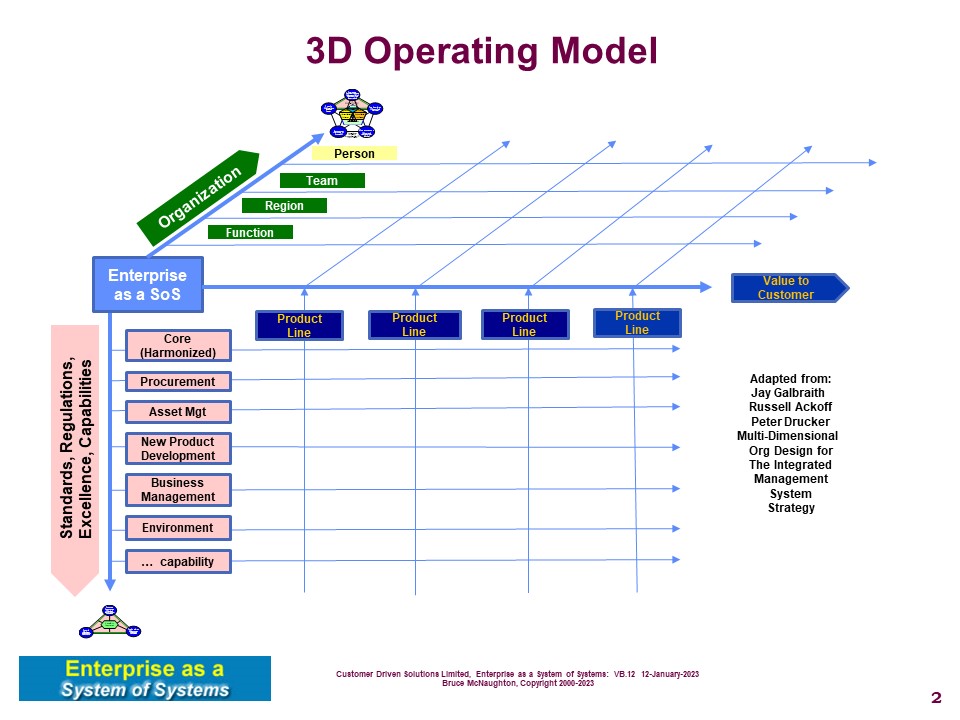
These three dimensions form the basis for establishing an Integrated Management System within the Enterprise. See the Integrated Management System System Description.
This model is deployed using the following two dimensions: Capability and Organization.
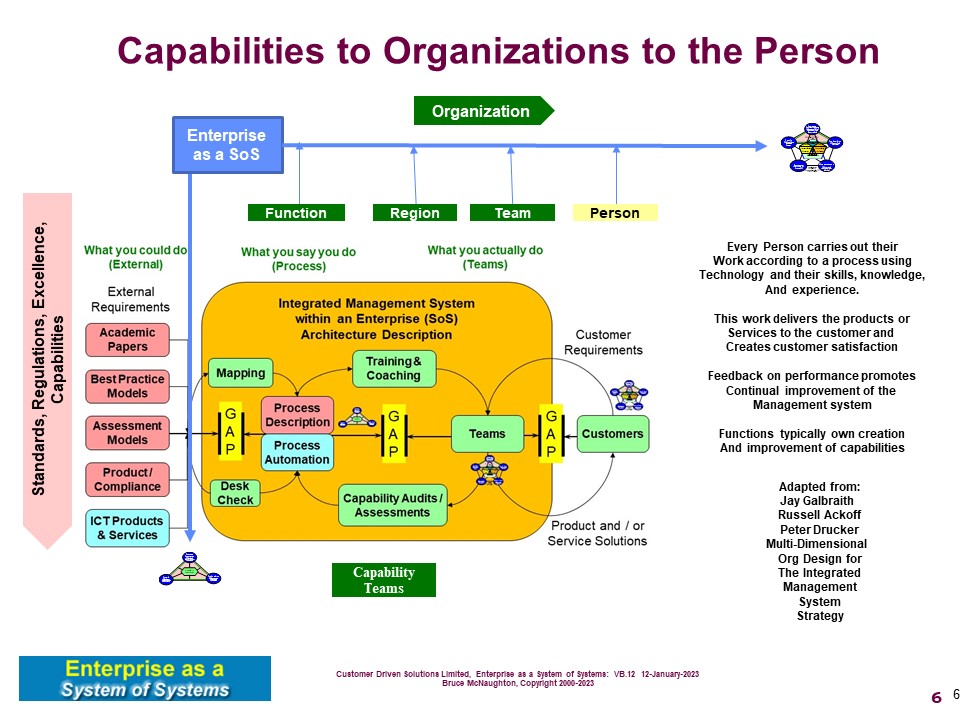
These two dimensions are in alignment with the Integrated Management System approach documented in the following PDF;
The capability dimension of the operating model provides the way the mapping of the external standards that are integrated into a management system. The processes are mapped to one or more external standards that allow for reuse across the set of external standards selected for use within the enterprise.
The way an individual capability is defined and added to the capability dimension is described in the capability System Description.
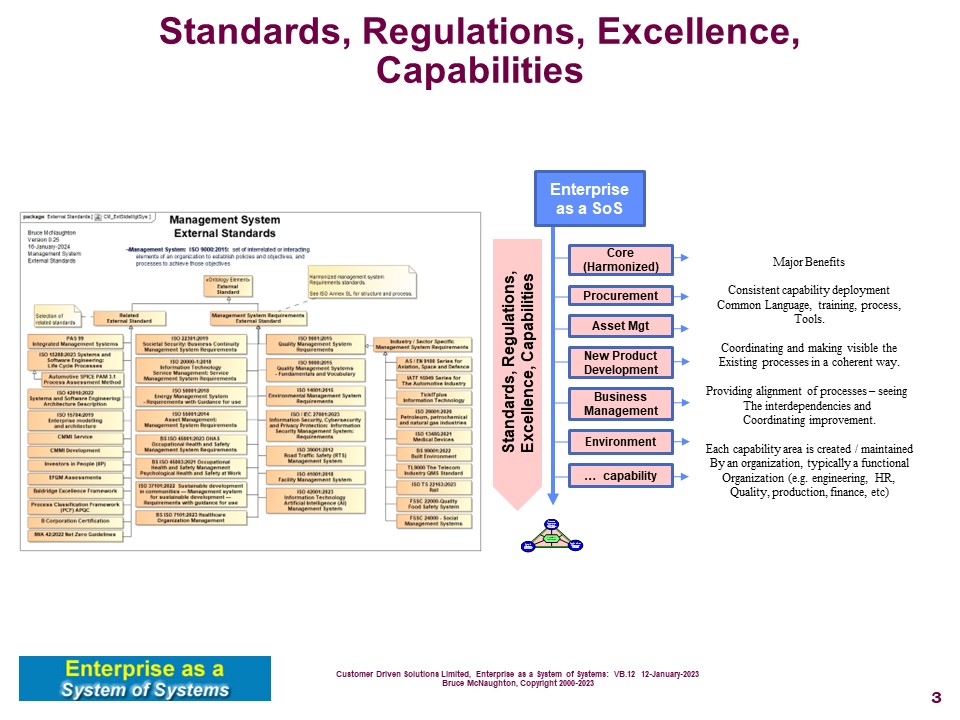
The value dimension of the 3D Operating Model scalability in the way the product lines within the organization deliver products and services to their customers. Each product or service may require a unique set of capabilities not found in the existing set of capabilities. This allows the enterprise to add more capabilities to the capability dimension to ensure appropriate external standards are addressed within the enterprise.
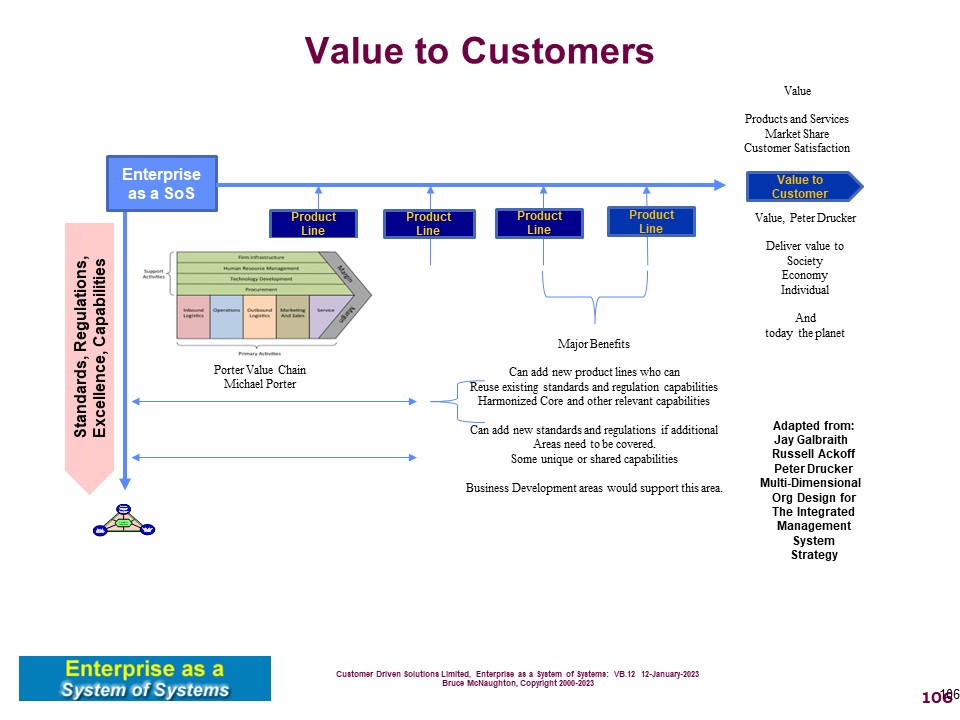
The Organization dimension of the 3D Operating Model is described in the organization System Description.